| # |
type |
message |
| 1 |  Routing Routing | connect "/captcha" |
| 2 |  Context Context | initialization |
| 3 |  Controller Controller | initialization |
| 4 |  Routing Routing | match route [na_vif] "/:make/:model/:id" |
| 5 |  Request Request | request parameters array ( 'make' => 'volkswagen', 'model' => 'karmann-ghia', 'id' => '198936', 'module' => 'home', 'action' => 'view',) |
| 6 |  Routing Routing | connect "/sf_cache_partial/:module/:action/:sf_cache_key" |
| 7 |  Creole Creole | connect(): DSN: array ( 'compat_assoc_lower' => '****', 'compat_rtrim_string' => '****', 'database' => '****', 'encoding' => '****', 'hostspec' => '****', 'password' => '****', 'persistent' => '****', 'phptype' => '****', 'port' => '****', 'protocol' => '****', 'socket' => '****', 'username' => '****', ), FLAGS: 0 |
| 8 |  Creole Creole | prepareStatement(): SET time_zone = '+01:00' |
| 9 |  Creole Creole | executeUpdate(): SET time_zone = '+01:00' |
| 10 |  Creole Creole | connect(): DSN: array ( 'compat_assoc_lower' => '****', 'compat_rtrim_string' => '****', 'database' => '****', 'encoding' => '****', 'hostspec' => '****', 'password' => '****', 'persistent' => '****', 'phptype' => '****', 'port' => '****', 'protocol' => '****', 'socket' => '****', 'username' => '****', ), FLAGS: 0 |
| 11 |  Creole Creole | prepareStatement(): SET time_zone = '+01:00' |
| 12 |  Creole Creole | executeUpdate(): SET time_zone = '+01:00' |
| 13 |  Creole Creole | connect(): DSN: array ( 'compat_assoc_lower' => '****', 'compat_rtrim_string' => '****', 'database' => '****', 'encoding' => '****', 'hostspec' => '****', 'password' => '****', 'persistent' => '****', 'phptype' => '****', 'port' => '****', 'protocol' => '****', 'socket' => '****', 'username' => '****', ), FLAGS: 0 |
| 14 |  Creole Creole | prepareStatement(): SET time_zone = '+01:00' |
| 15 |  Creole Creole | executeUpdate(): SET time_zone = '+01:00' |
| 16 |  Creole Creole | connect(): DSN: array ( 'compat_assoc_lower' => '****', 'compat_rtrim_string' => '****', 'database' => '****', 'encoding' => '****', 'hostspec' => '****', 'password' => '****', 'persistent' => '****', 'phptype' => '****', 'port' => '****', 'protocol' => '****', 'socket' => '****', 'username' => '****', ), FLAGS: 0 |
| 17 |  Creole Creole | prepareStatement(): SET time_zone = '+01:00' |
| 18 |  Creole Creole | executeUpdate(): SET time_zone = '+01:00' |
| 19 |  Creole Creole | connect(): DSN: array ( 'compat_assoc_lower' => '****', 'compat_rtrim_string' => '****', 'database' => '****', 'encoding' => '****', 'hostspec' => '****', 'password' => '****', 'persistent' => '****', 'phptype' => '****', 'port' => '****', 'protocol' => '****', 'socket' => '****', 'username' => '****', ), FLAGS: 0 |
| 20 |  Creole Creole | prepareStatement(): SET time_zone = '+01:00' |
| 21 |  Creole Creole | executeUpdate(): SET time_zone = '+01:00' |
| 22 |  Controller Controller | dispatch request |
| 23 |  Filter Filter | executing filter "sfRenderingFilter" |
| 24 |  Filter Filter | executing filter "sfWebDebugFilter" |
| 25 |  Filter Filter | executing filter "sfCarViewFilter" |
| 26 |  Filter Filter | executing filter "naBreadcrumbFilter" |
| 27 |  Filter Filter | executing filter "sfCacheFilter" |
| 28 |  Filter Filter | executing filter "sfCommonFilter" |
| 29 |  Filter Filter | executing filter "sfFlashFilter" |
| 30 |  Filter Filter | executing filter "sfExecutionFilter" |
| 31 |  Action Action | call "homeActions->executeView()" |
| 32 |  Creole Creole | prepareStatement(): SELECT car.ID, car.ID_NETTI_USER, car.ID_MAKE, car.ID_MODEL, car.ID_VEHICLE_TYPE, car.MFG_YEAR, car.MILEAGE, car.ENGINE_SIZE, car.ENGINE_MODEL, car.ID_ACC, car.DEALER_IDENTIFIER, car.CURRENCY, car.PRICE_ASK, car.PRICE_STATUS, car.DRIVE_SIDE, car.FIRST_REG, car.STATUS, car.POSTED_BY, car.STAY_UNKNOWN, car.DATE_CREATE, car.DATE_MODIFY, car.LOCATION, car_info.ID, car_info.ID_CAR, car_info.HOOVER_ID, car_info.REG_NO, car_info.SHOW_REG, car_info.ID_CAR_TYPE, car_info.ID_COLOR, car_info.ID_COLOR_TYPE, car_info.AD_CONDITION, car_info.DOCUMENTED_HISTORY, car_info.COMPETITION_HISTORY, car_info.REGISTERED_VEHICLE, car_info.MANUFACTURE_COUNTRY, car_info.DELIVERY_COUNTRY, car_info.GENERAL_DESCRIPTION, car_info.DOCUMENT_DESCRIPTION, car_info.COMPETITION_DESCRIPTION, car_info.TAGS, car_info.YOUTUBE_VID1, car_info.YOUTUBE_VID2, car_info.NOTE, car_info.REMARK, car_info.SHOW_DATE, car.ID AS ID_AD, UNIX_TIMESTAMP(car.DATE_CREATE) AS ENROLL_DATE, UNIX_TIMESTAMP(car.DATE_MODIFY) AS MODIFY_DATE, DATE_FORMAT(car.DATE_MODIFY,'%d.%m.%Y') AS DM, make.MAKE_EN AS MAKE, model.MODEL_EN AS MODEL, make.MAKE_EN AS MAKE_en, model.MODEL_EN AS MODEL_en, vehicle_type.VEHICLE_TYPE_EN AS VEHICLE_TYPE, car_type.CAR_TYPE_EN AS CAR_TYPE, color.COLOR_EN AS COLOR, color_type.COLOR_TYPE_EN AS COLOR_TYPE, car_stat.HIT_AD_INFO AS AD_HIT FROM car LEFT JOIN car_info ON (car.ID=car_info.ID_CAR) LEFT JOIN make ON (car.ID_MAKE=make.ID) LEFT JOIN model ON (car.ID_MODEL=model.ID) LEFT JOIN vehicle_type ON (car.ID_VEHICLE_TYPE=vehicle_type.ID) LEFT JOIN car_type ON (car_info.ID_CAR_TYPE=car_type.ID) LEFT JOIN color ON (car_info.ID_COLOR=color.ID) LEFT JOIN color_type ON (car_info.ID_COLOR_TYPE=color_type.ID) LEFT JOIN car_stat ON (car.ID=car_stat.ID_AD) WHERE car.ID=? AND car.STATUS=? |
| 33 |  Creole Creole | executeQuery(): [1.10 ms] SELECT car.ID, car.ID_NETTI_USER, car.ID_MAKE, car.ID_MODEL, car.ID_VEHICLE_TYPE, car.MFG_YEAR, car.MILEAGE, car.ENGINE_SIZE, car.ENGINE_MODEL, car.ID_ACC, car.DEALER_IDENTIFIER, car.CURRENCY, car.PRICE_ASK, car.PRICE_STATUS, car.DRIVE_SIDE, car.FIRST_REG, car.STATUS, car.POSTED_BY, car.STAY_UNKNOWN, car.DATE_CREATE, car.DATE_MODIFY, car.LOCATION, car_info.ID, car_info.ID_CAR, car_info.HOOVER_ID, car_info.REG_NO, car_info.SHOW_REG, car_info.ID_CAR_TYPE, car_info.ID_COLOR, car_info.ID_COLOR_TYPE, car_info.AD_CONDITION, car_info.DOCUMENTED_HISTORY, car_info.COMPETITION_HISTORY, car_info.REGISTERED_VEHICLE, car_info.MANUFACTURE_COUNTRY, car_info.DELIVERY_COUNTRY, car_info.GENERAL_DESCRIPTION, car_info.DOCUMENT_DESCRIPTION, car_info.COMPETITION_DESCRIPTION, car_info.TAGS, car_info.YOUTUBE_VID1, car_info.YOUTUBE_VID2, car_info.NOTE, car_info.REMARK, car_info.SHOW_DATE, car.ID AS ID_AD, UNIX_TIMESTAMP(car.DATE_CREATE) AS ENROLL_DATE, UNIX_TIMESTAMP(car.DATE_MODIFY) AS MODIFY_DATE, DATE_FORMAT(car.DATE_MODIFY,'%d.%m.%Y') AS DM, make.MAKE_EN AS MAKE, model.MODEL_EN AS MODEL, make.MAKE_EN AS MAKE_en, model.MODEL_EN AS MODEL_en, vehicle_type.VEHICLE_TYPE_EN AS VEHICLE_TYPE, car_type.CAR_TYPE_EN AS CAR_TYPE, color.COLOR_EN AS COLOR, color_type.COLOR_TYPE_EN AS COLOR_TYPE, car_stat.HIT_AD_INFO AS AD_HIT FROM car LEFT JOIN car_info ON (car.ID=car_info.ID_CAR) LEFT JOIN make ON (car.ID_MAKE=make.ID) LEFT JOIN model ON (car.ID_MODEL=model.ID) LEFT JOIN vehicle_type ON (car.ID_VEHICLE_TYPE=vehicle_type.ID) LEFT JOIN car_type ON (car_info.ID_CAR_TYPE=car_type.ID) LEFT JOIN color ON (car_info.ID_COLOR=color.ID) LEFT JOIN color_type ON (car_info.ID_COLOR_TYPE=color_type.ID) LEFT JOIN car_stat ON (car.ID=car_stat.ID_AD) WHERE car.ID=198936 AND car.STATUS='F' |
| 34 |  Creole Creole | prepareStatement(): SELECT netti_user.ID, netti_user.FNAME, netti_user.LNAME, netti_user.ADDRESS, netti_user.CITY, netti_user.EMAIL, netti_user.PHONE, netti_user.FAX, netti_user.MOBILE, netti_user.EMAIL, netti_user.ZIP, netti_user.CONT_TIME, netti_user.DOMICILE, netti_user.ID_COUNTRY, netti_user.CATEGORY, netti_user.LOGINID FROM netti_user WHERE netti_user.ID IN (?) |
| 35 |  Creole Creole | executeQuery(): [0.54 ms] SELECT netti_user.ID, netti_user.FNAME, netti_user.LNAME, netti_user.ADDRESS, netti_user.CITY, netti_user.EMAIL, netti_user.PHONE, netti_user.FAX, netti_user.MOBILE, netti_user.EMAIL, netti_user.ZIP, netti_user.CONT_TIME, netti_user.DOMICILE, netti_user.ID_COUNTRY, netti_user.CATEGORY, netti_user.LOGINID FROM netti_user WHERE netti_user.ID IN (1258) |
| 36 |  Creole Creole | prepareStatement(): SELECT car.ID, car.ID_NETTI_USER, car.ID_MAKE, car.ID_MODEL, car.ID_VEHICLE_TYPE, car.MFG_YEAR, car.MILEAGE, car.ENGINE_SIZE, car.ENGINE_MODEL, car.ID_ACC, car.DEALER_IDENTIFIER, car.CURRENCY, car.PRICE_ASK, car.PRICE_STATUS, car.DRIVE_SIDE, car.FIRST_REG, car.STATUS, car.POSTED_BY, car.STAY_UNKNOWN, car.DATE_CREATE, car.DATE_MODIFY, car.LOCATION, car_info.ID, car_info.ID_CAR, car_info.HOOVER_ID, car_info.REG_NO, car_info.SHOW_REG, car_info.ID_CAR_TYPE, car_info.ID_COLOR, car_info.ID_COLOR_TYPE, car_info.AD_CONDITION, car_info.DOCUMENTED_HISTORY, car_info.COMPETITION_HISTORY, car_info.REGISTERED_VEHICLE, car_info.MANUFACTURE_COUNTRY, car_info.DELIVERY_COUNTRY, car_info.GENERAL_DESCRIPTION, car_info.DOCUMENT_DESCRIPTION, car_info.COMPETITION_DESCRIPTION, car_info.TAGS, car_info.YOUTUBE_VID1, car_info.YOUTUBE_VID2, car_info.NOTE, car_info.REMARK, car_info.SHOW_DATE, DATE_ADD(car.DATE_MODIFY,INTERVAL 3 DAY) AS DM FROM car LEFT JOIN car_info ON (car.ID=car_info.ID_CAR) WHERE car.ID=? |
| 37 |  Creole Creole | executeQuery(): [0.75 ms] SELECT car.ID, car.ID_NETTI_USER, car.ID_MAKE, car.ID_MODEL, car.ID_VEHICLE_TYPE, car.MFG_YEAR, car.MILEAGE, car.ENGINE_SIZE, car.ENGINE_MODEL, car.ID_ACC, car.DEALER_IDENTIFIER, car.CURRENCY, car.PRICE_ASK, car.PRICE_STATUS, car.DRIVE_SIDE, car.FIRST_REG, car.STATUS, car.POSTED_BY, car.STAY_UNKNOWN, car.DATE_CREATE, car.DATE_MODIFY, car.LOCATION, car_info.ID, car_info.ID_CAR, car_info.HOOVER_ID, car_info.REG_NO, car_info.SHOW_REG, car_info.ID_CAR_TYPE, car_info.ID_COLOR, car_info.ID_COLOR_TYPE, car_info.AD_CONDITION, car_info.DOCUMENTED_HISTORY, car_info.COMPETITION_HISTORY, car_info.REGISTERED_VEHICLE, car_info.MANUFACTURE_COUNTRY, car_info.DELIVERY_COUNTRY, car_info.GENERAL_DESCRIPTION, car_info.DOCUMENT_DESCRIPTION, car_info.COMPETITION_DESCRIPTION, car_info.TAGS, car_info.YOUTUBE_VID1, car_info.YOUTUBE_VID2, car_info.NOTE, car_info.REMARK, car_info.SHOW_DATE, DATE_ADD(car.DATE_MODIFY,INTERVAL 3 DAY) AS DM FROM car LEFT JOIN car_info ON (car.ID=car_info.ID_CAR) WHERE car.ID=198936 |
| 38 |  Creole Creole | prepareStatement(): SELECT COUNT(hoover_check.ID) FROM hoover_check WHERE hoover_check.ID_CAR=? |
| 39 |  Creole Creole | executeQuery(): [0.64 ms] SELECT COUNT(hoover_check.ID) FROM hoover_check WHERE hoover_check.ID_CAR=198936 |
| 40 |  Creole Creole | prepareStatement(): SELECT car_contact.ID, car_contact.ID_AD, car_contact.ID_SOURCE_AD, car_contact.SCODE, car_contact.COMPANY, car_contact.NAME, car_contact.CITY, car_contact.ADDRESS, car_contact.ZIP, car_contact.EMAIL, car_contact.CONT_TIME, car_contact.PHONE, car_contact.MOBILE, car_contact.FAX, car_contact.WEB_URL, car_contact.DATE_CREATE, car_contact.DATE_MODIFY FROM car_contact WHERE car_contact.ID_AD=? |
| 41 |  Creole Creole | executeQuery(): [15.01 ms] SELECT car_contact.ID, car_contact.ID_AD, car_contact.ID_SOURCE_AD, car_contact.SCODE, car_contact.COMPANY, car_contact.NAME, car_contact.CITY, car_contact.ADDRESS, car_contact.ZIP, car_contact.EMAIL, car_contact.CONT_TIME, car_contact.PHONE, car_contact.MOBILE, car_contact.FAX, car_contact.WEB_URL, car_contact.DATE_CREATE, car_contact.DATE_MODIFY FROM car_contact WHERE car_contact.ID_AD=198936 |
| 42 |  Creole Creole | prepareStatement(): SELECT netti_dealer.ID_DEALER, netti_dealer.ID, netti_dealer.PATH, netti_dealer.COMPANY, netti_dealer.SLOGAN, netti_dealer.URL, netti_dealer.SIMPLE_URL, netti_dealer.HAS_SITE FROM netti_dealer WHERE netti_dealer.ID_DEALER IN (?) |
| 43 |  Creole Creole | executeQuery(): [0.57 ms] SELECT netti_dealer.ID_DEALER, netti_dealer.ID, netti_dealer.PATH, netti_dealer.COMPANY, netti_dealer.SLOGAN, netti_dealer.URL, netti_dealer.SIMPLE_URL, netti_dealer.HAS_SITE FROM netti_dealer WHERE netti_dealer.ID_DEALER IN (1258) |
| 44 |  Creole Creole | prepareStatement(): SELECT COUNT(fa_payment_order.ID) FROM fa_payment_order WHERE fa_payment_order.ID_PRODUCT=? AND fa_payment_order.PAYMENT_STATUS=? AND fa_payment_order.UPSELLS_TAKEN=? |
| 45 |  Creole Creole | executeQuery(): [0.52 ms] SELECT COUNT(fa_payment_order.ID) FROM fa_payment_order WHERE fa_payment_order.ID_PRODUCT=198936 AND fa_payment_order.PAYMENT_STATUS='S' AND fa_payment_order.UPSELLS_TAKEN='2' |
| 46 |  Creole Creole | prepareStatement(): SELECT package_type.ID, package_type.TITLE_EN, package_type.DESCRIPTION_EN, package_type.TITLE_DE, package_type.DESCRIPTION_DE, package_type.TITLE_SV, package_type.DESCRIPTION_SV, package_type.PRICE FROM package_type WHERE package_type.ID=? |
| 47 |  Creole Creole | executeQuery(): [0.43 ms] SELECT package_type.ID, package_type.TITLE_EN, package_type.DESCRIPTION_EN, package_type.TITLE_DE, package_type.DESCRIPTION_DE, package_type.TITLE_SV, package_type.DESCRIPTION_SV, package_type.PRICE FROM package_type WHERE package_type.ID='1' |
| 48 |  Creole Creole | prepareStatement(): SELECT carimg.ID, carimg.ID_AD, carimg.PATH, carimg.IMG_HASH, carimg.ORIGINAL, carimg.ORD, carimg.WIDTH, carimg.HEIGHT FROM carimg WHERE carimg.ID_AD IN (198936) ORDER BY carimg.ORD ASC |
| 49 |  Creole Creole | executeQuery(): [0.62 ms] SELECT carimg.ID, carimg.ID_AD, carimg.PATH, carimg.IMG_HASH, carimg.ORIGINAL, carimg.ORD, carimg.WIDTH, carimg.HEIGHT FROM carimg WHERE carimg.ID_AD IN (198936) ORDER BY carimg.ORD ASC |
| 50 |  Creole Creole | prepareStatement(): SELECT netti_user.ID, netti_user.FNAME, netti_user.LNAME, netti_user.ADDRESS, netti_user.CITY, netti_user.EMAIL, netti_user.PHONE, netti_user.FAX, netti_user.MOBILE, netti_user.EMAIL, netti_user.ZIP, netti_user.CONT_TIME, netti_user.DOMICILE, netti_user.ID_COUNTRY, netti_user.CATEGORY, netti_user.LOGINID FROM netti_user WHERE netti_user.ID IN (?) |
| 51 |  Creole Creole | executeQuery(): [0.44 ms] SELECT netti_user.ID, netti_user.FNAME, netti_user.LNAME, netti_user.ADDRESS, netti_user.CITY, netti_user.EMAIL, netti_user.PHONE, netti_user.FAX, netti_user.MOBILE, netti_user.EMAIL, netti_user.ZIP, netti_user.CONT_TIME, netti_user.DOMICILE, netti_user.ID_COUNTRY, netti_user.CATEGORY, netti_user.LOGINID FROM netti_user WHERE netti_user.ID IN (1258) |
| 52 |  Creole Creole | prepareStatement(): SELECT COUNT(dealer_permission.ID) FROM dealer_permission WHERE dealer_permission.ID_DEALER=? AND dealer_permission.WHICH=? |
| 53 |  Creole Creole | executeQuery(): [0.52 ms] SELECT COUNT(dealer_permission.ID) FROM dealer_permission WHERE dealer_permission.ID_DEALER=1258 AND dealer_permission.WHICH='Q' |
| 54 |  Creole Creole | prepareStatement(): SELECT model.ID, model.ID_MAKE, model.MODEL_EN, model.MODEL_DE, model.MODEL_SV, model.DESCRIPTION_EN, model.DESCRIPTION_DE, model.DESCRIPTION_SV, model.COUNTER, model.ORD, model.DATE_CREATE, model.DATE_MODIFY, model.ID_VEHICLE_TYPE, model.ID_DRIVE_TYPE, model.DATE_RANDOM, make.DESCRIPTION_EN AS MAKE_DESC, model.DESCRIPTION_EN AS MODEL_DESC FROM model, make WHERE make.ID=? AND model.ID=? AND make.ID=model.ID_MAKE |
| 55 |  Creole Creole | executeQuery(): [0.55 ms] SELECT model.ID, model.ID_MAKE, model.MODEL_EN, model.MODEL_DE, model.MODEL_SV, model.DESCRIPTION_EN, model.DESCRIPTION_DE, model.DESCRIPTION_SV, model.COUNTER, model.ORD, model.DATE_CREATE, model.DATE_MODIFY, model.ID_VEHICLE_TYPE, model.ID_DRIVE_TYPE, model.DATE_RANDOM, make.DESCRIPTION_EN AS MAKE_DESC, model.DESCRIPTION_EN AS MODEL_DESC FROM model, make WHERE make.ID=175 AND model.ID=2009 AND make.ID=model.ID_MAKE |
| 56 |  Creole Creole | prepareStatement(): ( SELECT car.ID, car.ID_NETTI_USER, car.ID_MAKE, car.ID_MODEL, car.ID_VEHICLE_TYPE, car.MFG_YEAR, car.MILEAGE, car.ENGINE_SIZE, car.ENGINE_MODEL, car.ID_ACC, car.DEALER_IDENTIFIER, car.CURRENCY, car.PRICE_ASK, car.PRICE_STATUS, car.DRIVE_SIDE, car.FIRST_REG, car.STATUS, car.POSTED_BY, car.STAY_UNKNOWN, car.DATE_CREATE, car.DATE_MODIFY, car.LOCATION, car.ID AS ID_AD, UNIX_TIMESTAMP(car.DATE_CREATE) AS ENROLL_DATE, UNIX_TIMESTAMP(car.DATE_MODIFY) AS MODIFY_DATE, car_info.ID_CAR_TYPE AS ID_CAR_TYPE, car_info.GENERAL_DESCRIPTION AS GENERAL_DESCRIPTION, car_info.DOCUMENT_DESCRIPTION AS DOCUMENT_DESCRIPTION, car_info.COMPETITION_DESCRIPTION AS COMPETITION_DESCRIPTION, car_info.NOTE FROM cd_cars.car LEFT JOIN cd_cars.make ON (car.ID_MAKE=make.ID) LEFT JOIN cd_cars.model ON (car.ID_MODEL=model.ID) LEFT JOIN cd_cars.car_info ON (car.ID=car_info.ID_CAR) WHERE car.status = 'F' AND car.ID != 198936 AND car.ID_MODEL = '2009' ) UNION ( SELECT car.ID, car.ID_NETTI_USER, car.ID_MAKE, car.ID_MODEL, car.ID_VEHICLE_TYPE, car.MFG_YEAR, car.MILEAGE, car.ENGINE_SIZE, car.ENGINE_MODEL, car.ID_ACC, car.DEALER_IDENTIFIER, car.CURRENCY, car.PRICE_ASK, car.PRICE_STATUS, car.DRIVE_SIDE, car.FIRST_REG, car.STATUS, car.POSTED_BY, car.STAY_UNKNOWN, car.DATE_CREATE, car.DATE_MODIFY, car.LOCATION, car.ID AS ID_AD, UNIX_TIMESTAMP(car.DATE_CREATE) AS ENROLL_DATE, UNIX_TIMESTAMP(car.DATE_MODIFY) AS MODIFY_DATE, car_info.ID_CAR_TYPE AS ID_CAR_TYPE, car_info.GENERAL_DESCRIPTION AS GENERAL_DESCRIPTION, car_info.DOCUMENT_DESCRIPTION AS DOCUMENT_DESCRIPTION, car_info.COMPETITION_DESCRIPTION AS COMPETITION_DESCRIPTION, car_info.NOTE FROM cd_cars.sold_car as car LEFT JOIN cd_cars.make ON (car.ID_MAKE=make.ID) LEFT JOIN cd_cars.model ON (car.ID_MODEL=model.ID) LEFT JOIN cd_cars.sold_car_info as car_info ON (car.ID=car_info.ID_CAR) WHERE car.status = 'S' and car.date_modify > DATE_SUB(NOW(), INTERVAL 1 WEEK) AND car.ID != 198936 AND car.ID_MODEL = '2009' ) ORDER BY ID DESC |
| 57 |  Creole Creole | prepareStatement(): SELECT COUNT( * ) AS count FROM ( ( SELECT car.id FROM cd_cars.car LEFT JOIN cd_cars.make ON (car.ID_MAKE=make.ID) LEFT JOIN cd_cars.model ON (car.ID_MODEL=model.ID) LEFT JOIN cd_cars.car_info ON (car.ID=car_info.ID_CAR) WHERE car.status = 'F' AND car.ID != 198936 AND car.ID_MODEL = '2009' ) UNION ( SELECT car.id FROM cd_cars.sold_car as car LEFT JOIN cd_cars.make ON (car.ID_MAKE=make.ID) LEFT JOIN cd_cars.model ON (car.ID_MODEL=model.ID) LEFT JOIN cd_cars.sold_car_info as car_info ON (car.ID=car_info.ID_CAR) WHERE car.status = 'S' and car.date_modify > DATE_SUB(NOW(), INTERVAL 1 WEEK) AND car.ID != 198936 AND car.ID_MODEL = '2009' ) ) AS count |
| 58 |  Creole Creole | executeQuery(): [2.80 ms] SELECT COUNT( * ) AS count FROM ( ( SELECT car.id FROM cd_cars.car LEFT JOIN cd_cars.make ON (car.ID_MAKE=make.ID) LEFT JOIN cd_cars.model ON (car.ID_MODEL=model.ID) LEFT JOIN cd_cars.car_info ON (car.ID=car_info.ID_CAR) WHERE car.status = 'F' AND car.ID != 198936 AND car.ID_MODEL = '2009' ) UNION ( SELECT car.id FROM cd_cars.sold_car as car LEFT JOIN cd_cars.make ON (car.ID_MAKE=make.ID) LEFT JOIN cd_cars.model ON (car.ID_MODEL=model.ID) LEFT JOIN cd_cars.sold_car_info as car_info ON (car.ID=car_info.ID_CAR) WHERE car.status = 'S' and car.date_modify > DATE_SUB(NOW(), INTERVAL 1 WEEK) AND car.ID != 198936 AND car.ID_MODEL = '2009' ) ) AS count |
| 59 |  Creole Creole | applyLimit(): ( SELECT car.ID, car.ID_NETTI_USER, car.ID_MAKE, car.ID_MODEL, car.ID_VEHICLE_TYPE, car.MFG_YEAR, car.MILEAGE, car.ENGINE_SIZE, car.ENGINE_MODEL, car.ID_ACC, car.DEALER_IDENTIFIER, car.CURRENCY, car.PRICE_ASK, car.PRICE_STATUS, car.DRIVE_SIDE, car.FIRST_REG, car.STATUS, car.POSTED_BY, car.STAY_UNKNOWN, car.DATE_CREATE, car.DATE_MODIFY, car.LOCATION, car.ID AS ID_AD, UNIX_TIMESTAMP(car.DATE_CREATE) AS ENROLL_DATE, UNIX_TIMESTAMP(car.DATE_MODIFY) AS MODIFY_DATE, car_info.ID_CAR_TYPE AS ID_CAR_TYPE, car_info.GENERAL_DESCRIPTION AS GENERAL_DESCRIPTION, car_info.DOCUMENT_DESCRIPTION AS DOCUMENT_DESCRIPTION, car_info.COMPETITION_DESCRIPTION AS COMPETITION_DESCRIPTION, car_info.NOTE FROM cd_cars.car LEFT JOIN cd_cars.make ON (car.ID_MAKE=make.ID) LEFT JOIN cd_cars.model ON (car.ID_MODEL=model.ID) LEFT JOIN cd_cars.car_info ON (car.ID=car_info.ID_CAR) WHERE car.status = 'F' AND car.ID != 198936 AND car.ID_MODEL = '2009' ) UNION ( SELECT car.ID, car.ID_NETTI_USER, car.ID_MAKE, car.ID_MODEL, car.ID_VEHICLE_TYPE, car.MFG_YEAR, car.MILEAGE, car.ENGINE_SIZE, car.ENGINE_MODEL, car.ID_ACC, car.DEALER_IDENTIFIER, car.CURRENCY, car.PRICE_ASK, car.PRICE_STATUS, car.DRIVE_SIDE, car.FIRST_REG, car.STATUS, car.POSTED_BY, car.STAY_UNKNOWN, car.DATE_CREATE, car.DATE_MODIFY, car.LOCATION, car.ID AS ID_AD, UNIX_TIMESTAMP(car.DATE_CREATE) AS ENROLL_DATE, UNIX_TIMESTAMP(car.DATE_MODIFY) AS MODIFY_DATE, car_info.ID_CAR_TYPE AS ID_CAR_TYPE, car_info.GENERAL_DESCRIPTION AS GENERAL_DESCRIPTION, car_info.DOCUMENT_DESCRIPTION AS DOCUMENT_DESCRIPTION, car_info.COMPETITION_DESCRIPTION AS COMPETITION_DESCRIPTION, car_info.NOTE FROM cd_cars.sold_car as car LEFT JOIN cd_cars.make ON (car.ID_MAKE=make.ID) LEFT JOIN cd_cars.model ON (car.ID_MODEL=model.ID) LEFT JOIN cd_cars.sold_car_info as car_info ON (car.ID=car_info.ID_CAR) WHERE car.status = 'S' and car.date_modify > DATE_SUB(NOW(), INTERVAL 1 WEEK) AND car.ID != 198936 AND car.ID_MODEL = '2009' ) ORDER BY ID DESC, offset: 0, limit: 5 |
| 60 |  Creole Creole | executeQuery(): [4.07 ms] ( SELECT car.ID, car.ID_NETTI_USER, car.ID_MAKE, car.ID_MODEL, car.ID_VEHICLE_TYPE, car.MFG_YEAR, car.MILEAGE, car.ENGINE_SIZE, car.ENGINE_MODEL, car.ID_ACC, car.DEALER_IDENTIFIER, car.CURRENCY, car.PRICE_ASK, car.PRICE_STATUS, car.DRIVE_SIDE, car.FIRST_REG, car.STATUS, car.POSTED_BY, car.STAY_UNKNOWN, car.DATE_CREATE, car.DATE_MODIFY, car.LOCATION, car.ID AS ID_AD, UNIX_TIMESTAMP(car.DATE_CREATE) AS ENROLL_DATE, UNIX_TIMESTAMP(car.DATE_MODIFY) AS MODIFY_DATE, car_info.ID_CAR_TYPE AS ID_CAR_TYPE, car_info.GENERAL_DESCRIPTION AS GENERAL_DESCRIPTION, car_info.DOCUMENT_DESCRIPTION AS DOCUMENT_DESCRIPTION, car_info.COMPETITION_DESCRIPTION AS COMPETITION_DESCRIPTION, car_info.NOTE FROM cd_cars.car LEFT JOIN cd_cars.make ON (car.ID_MAKE=make.ID) LEFT JOIN cd_cars.model ON (car.ID_MODEL=model.ID) LEFT JOIN cd_cars.car_info ON (car.ID=car_info.ID_CAR) WHERE car.status = 'F' AND car.ID != 198936 AND car.ID_MODEL = '2009' ) UNION ( SELECT car.ID, car.ID_NETTI_USER, car.ID_MAKE, car.ID_MODEL, car.ID_VEHICLE_TYPE, car.MFG_YEAR, car.MILEAGE, car.ENGINE_SIZE, car.ENGINE_MODEL, car.ID_ACC, car.DEALER_IDENTIFIER, car.CURRENCY, car.PRICE_ASK, car.PRICE_STATUS, car.DRIVE_SIDE, car.FIRST_REG, car.STATUS, car.POSTED_BY, car.STAY_UNKNOWN, car.DATE_CREATE, car.DATE_MODIFY, car.LOCATION, car.ID AS ID_AD, UNIX_TIMESTAMP(car.DATE_CREATE) AS ENROLL_DATE, UNIX_TIMESTAMP(car.DATE_MODIFY) AS MODIFY_DATE, car_info.ID_CAR_TYPE AS ID_CAR_TYPE, car_info.GENERAL_DESCRIPTION AS GENERAL_DESCRIPTION, car_info.DOCUMENT_DESCRIPTION AS DOCUMENT_DESCRIPTION, car_info.COMPETITION_DESCRIPTION AS COMPETITION_DESCRIPTION, car_info.NOTE FROM cd_cars.sold_car as car LEFT JOIN cd_cars.make ON (car.ID_MAKE=make.ID) LEFT JOIN cd_cars.model ON (car.ID_MODEL=model.ID) LEFT JOIN cd_cars.sold_car_info as car_info ON (car.ID=car_info.ID_CAR) WHERE car.status = 'S' and car.date_modify > DATE_SUB(NOW(), INTERVAL 1 WEEK) AND car.ID != 198936 AND car.ID_MODEL = '2009' ) ORDER BY ID DESC LIMIT 5 |
| 61 |  Creole Creole | prepareStatement(): SELECT carimg.ID, carimg.ID_AD, carimg.PATH, carimg.IMG_HASH, carimg.ORIGINAL, carimg.ORD, carimg.WIDTH, carimg.HEIGHT FROM carimg WHERE carimg.ID_AD IN (199854,198580,195912,194344,192988) ORDER BY carimg.ORD ASC |
| 62 |  Creole Creole | executeQuery(): [0.93 ms] SELECT carimg.ID, carimg.ID_AD, carimg.PATH, carimg.IMG_HASH, carimg.ORIGINAL, carimg.ORD, carimg.WIDTH, carimg.HEIGHT FROM carimg WHERE carimg.ID_AD IN (199854,198580,195912,194344,192988) ORDER BY carimg.ORD ASC |
| 63 |  Creole Creole | prepareStatement(): ( SELECT car.ID, car.ID_NETTI_USER, car.ID_MAKE, car.ID_MODEL, car.ID_VEHICLE_TYPE, car.MFG_YEAR, car.MILEAGE, car.ENGINE_SIZE, car.ENGINE_MODEL, car.ID_ACC, car.DEALER_IDENTIFIER, car.CURRENCY, car.PRICE_ASK, car.PRICE_STATUS, car.DRIVE_SIDE, car.FIRST_REG, car.STATUS, car.POSTED_BY, car.STAY_UNKNOWN, car.DATE_CREATE, car.DATE_MODIFY, car.LOCATION, car.ID AS ID_AD, UNIX_TIMESTAMP(car.DATE_CREATE) AS ENROLL_DATE, UNIX_TIMESTAMP(car.DATE_MODIFY) AS MODIFY_DATE, car_info.ID_CAR_TYPE AS ID_CAR_TYPE, car_info.GENERAL_DESCRIPTION AS GENERAL_DESCRIPTION, car_info.DOCUMENT_DESCRIPTION AS DOCUMENT_DESCRIPTION, car_info.COMPETITION_DESCRIPTION AS COMPETITION_DESCRIPTION, car_info.NOTE FROM cd_cars.car LEFT JOIN cd_cars.make ON (car.ID_MAKE=make.ID) LEFT JOIN cd_cars.model ON (car.ID_MODEL=model.ID) LEFT JOIN cd_cars.car_info ON (car.ID=car_info.ID_CAR) WHERE car.status = 'F' AND car.ID != '198936' AND car.ID_NETTI_USER = '1258' ) UNION ( SELECT car.ID, car.ID_NETTI_USER, car.ID_MAKE, car.ID_MODEL, car.ID_VEHICLE_TYPE, car.MFG_YEAR, car.MILEAGE, car.ENGINE_SIZE, car.ENGINE_MODEL, car.ID_ACC, car.DEALER_IDENTIFIER, car.CURRENCY, car.PRICE_ASK, car.PRICE_STATUS, car.DRIVE_SIDE, car.FIRST_REG, car.STATUS, car.POSTED_BY, car.STAY_UNKNOWN, car.DATE_CREATE, car.DATE_MODIFY, car.LOCATION, car.ID AS ID_AD, UNIX_TIMESTAMP(car.DATE_CREATE) AS ENROLL_DATE, UNIX_TIMESTAMP(car.DATE_MODIFY) AS MODIFY_DATE, car_info.ID_CAR_TYPE AS ID_CAR_TYPE, car_info.GENERAL_DESCRIPTION AS GENERAL_DESCRIPTION, car_info.DOCUMENT_DESCRIPTION AS DOCUMENT_DESCRIPTION, car_info.COMPETITION_DESCRIPTION AS COMPETITION_DESCRIPTION, car_info.NOTE FROM cd_cars.sold_car as car LEFT JOIN cd_cars.make ON (car.ID_MAKE=make.ID) LEFT JOIN cd_cars.model ON (car.ID_MODEL=model.ID) LEFT JOIN cd_cars.sold_car_info as car_info ON (car.ID=car_info.ID_CAR) WHERE car.status = 'S' and car.date_modify > DATE_SUB(NOW(), INTERVAL 1 WEEK) AND car.ID != '198936' AND car.ID_NETTI_USER = '1258' ) ORDER BY ID DESC |
| 64 |  Creole Creole | prepareStatement(): SELECT COUNT( * ) AS count FROM ( ( SELECT car.id FROM cd_cars.car LEFT JOIN cd_cars.make ON (car.ID_MAKE=make.ID) LEFT JOIN cd_cars.model ON (car.ID_MODEL=model.ID) LEFT JOIN cd_cars.car_info ON (car.ID=car_info.ID_CAR) WHERE car.status = 'F' AND car.ID != '198936' AND car.ID_NETTI_USER = '1258' ) UNION ( SELECT car.id FROM cd_cars.sold_car as car LEFT JOIN cd_cars.make ON (car.ID_MAKE=make.ID) LEFT JOIN cd_cars.model ON (car.ID_MODEL=model.ID) LEFT JOIN cd_cars.sold_car_info as car_info ON (car.ID=car_info.ID_CAR) WHERE car.status = 'S' and car.date_modify > DATE_SUB(NOW(), INTERVAL 1 WEEK) AND car.ID != '198936' AND car.ID_NETTI_USER = '1258' ) ) AS count |
| 65 |  Creole Creole | executeQuery(): [8.66 ms] SELECT COUNT( * ) AS count FROM ( ( SELECT car.id FROM cd_cars.car LEFT JOIN cd_cars.make ON (car.ID_MAKE=make.ID) LEFT JOIN cd_cars.model ON (car.ID_MODEL=model.ID) LEFT JOIN cd_cars.car_info ON (car.ID=car_info.ID_CAR) WHERE car.status = 'F' AND car.ID != '198936' AND car.ID_NETTI_USER = '1258' ) UNION ( SELECT car.id FROM cd_cars.sold_car as car LEFT JOIN cd_cars.make ON (car.ID_MAKE=make.ID) LEFT JOIN cd_cars.model ON (car.ID_MODEL=model.ID) LEFT JOIN cd_cars.sold_car_info as car_info ON (car.ID=car_info.ID_CAR) WHERE car.status = 'S' and car.date_modify > DATE_SUB(NOW(), INTERVAL 1 WEEK) AND car.ID != '198936' AND car.ID_NETTI_USER = '1258' ) ) AS count |
| 66 |  Creole Creole | applyLimit(): ( SELECT car.ID, car.ID_NETTI_USER, car.ID_MAKE, car.ID_MODEL, car.ID_VEHICLE_TYPE, car.MFG_YEAR, car.MILEAGE, car.ENGINE_SIZE, car.ENGINE_MODEL, car.ID_ACC, car.DEALER_IDENTIFIER, car.CURRENCY, car.PRICE_ASK, car.PRICE_STATUS, car.DRIVE_SIDE, car.FIRST_REG, car.STATUS, car.POSTED_BY, car.STAY_UNKNOWN, car.DATE_CREATE, car.DATE_MODIFY, car.LOCATION, car.ID AS ID_AD, UNIX_TIMESTAMP(car.DATE_CREATE) AS ENROLL_DATE, UNIX_TIMESTAMP(car.DATE_MODIFY) AS MODIFY_DATE, car_info.ID_CAR_TYPE AS ID_CAR_TYPE, car_info.GENERAL_DESCRIPTION AS GENERAL_DESCRIPTION, car_info.DOCUMENT_DESCRIPTION AS DOCUMENT_DESCRIPTION, car_info.COMPETITION_DESCRIPTION AS COMPETITION_DESCRIPTION, car_info.NOTE FROM cd_cars.car LEFT JOIN cd_cars.make ON (car.ID_MAKE=make.ID) LEFT JOIN cd_cars.model ON (car.ID_MODEL=model.ID) LEFT JOIN cd_cars.car_info ON (car.ID=car_info.ID_CAR) WHERE car.status = 'F' AND car.ID != '198936' AND car.ID_NETTI_USER = '1258' ) UNION ( SELECT car.ID, car.ID_NETTI_USER, car.ID_MAKE, car.ID_MODEL, car.ID_VEHICLE_TYPE, car.MFG_YEAR, car.MILEAGE, car.ENGINE_SIZE, car.ENGINE_MODEL, car.ID_ACC, car.DEALER_IDENTIFIER, car.CURRENCY, car.PRICE_ASK, car.PRICE_STATUS, car.DRIVE_SIDE, car.FIRST_REG, car.STATUS, car.POSTED_BY, car.STAY_UNKNOWN, car.DATE_CREATE, car.DATE_MODIFY, car.LOCATION, car.ID AS ID_AD, UNIX_TIMESTAMP(car.DATE_CREATE) AS ENROLL_DATE, UNIX_TIMESTAMP(car.DATE_MODIFY) AS MODIFY_DATE, car_info.ID_CAR_TYPE AS ID_CAR_TYPE, car_info.GENERAL_DESCRIPTION AS GENERAL_DESCRIPTION, car_info.DOCUMENT_DESCRIPTION AS DOCUMENT_DESCRIPTION, car_info.COMPETITION_DESCRIPTION AS COMPETITION_DESCRIPTION, car_info.NOTE FROM cd_cars.sold_car as car LEFT JOIN cd_cars.make ON (car.ID_MAKE=make.ID) LEFT JOIN cd_cars.model ON (car.ID_MODEL=model.ID) LEFT JOIN cd_cars.sold_car_info as car_info ON (car.ID=car_info.ID_CAR) WHERE car.status = 'S' and car.date_modify > DATE_SUB(NOW(), INTERVAL 1 WEEK) AND car.ID != '198936' AND car.ID_NETTI_USER = '1258' ) ORDER BY ID DESC, offset: 0, limit: 5 |
| 67 |  Creole Creole | executeQuery(): [13.93 ms] ( SELECT car.ID, car.ID_NETTI_USER, car.ID_MAKE, car.ID_MODEL, car.ID_VEHICLE_TYPE, car.MFG_YEAR, car.MILEAGE, car.ENGINE_SIZE, car.ENGINE_MODEL, car.ID_ACC, car.DEALER_IDENTIFIER, car.CURRENCY, car.PRICE_ASK, car.PRICE_STATUS, car.DRIVE_SIDE, car.FIRST_REG, car.STATUS, car.POSTED_BY, car.STAY_UNKNOWN, car.DATE_CREATE, car.DATE_MODIFY, car.LOCATION, car.ID AS ID_AD, UNIX_TIMESTAMP(car.DATE_CREATE) AS ENROLL_DATE, UNIX_TIMESTAMP(car.DATE_MODIFY) AS MODIFY_DATE, car_info.ID_CAR_TYPE AS ID_CAR_TYPE, car_info.GENERAL_DESCRIPTION AS GENERAL_DESCRIPTION, car_info.DOCUMENT_DESCRIPTION AS DOCUMENT_DESCRIPTION, car_info.COMPETITION_DESCRIPTION AS COMPETITION_DESCRIPTION, car_info.NOTE FROM cd_cars.car LEFT JOIN cd_cars.make ON (car.ID_MAKE=make.ID) LEFT JOIN cd_cars.model ON (car.ID_MODEL=model.ID) LEFT JOIN cd_cars.car_info ON (car.ID=car_info.ID_CAR) WHERE car.status = 'F' AND car.ID != '198936' AND car.ID_NETTI_USER = '1258' ) UNION ( SELECT car.ID, car.ID_NETTI_USER, car.ID_MAKE, car.ID_MODEL, car.ID_VEHICLE_TYPE, car.MFG_YEAR, car.MILEAGE, car.ENGINE_SIZE, car.ENGINE_MODEL, car.ID_ACC, car.DEALER_IDENTIFIER, car.CURRENCY, car.PRICE_ASK, car.PRICE_STATUS, car.DRIVE_SIDE, car.FIRST_REG, car.STATUS, car.POSTED_BY, car.STAY_UNKNOWN, car.DATE_CREATE, car.DATE_MODIFY, car.LOCATION, car.ID AS ID_AD, UNIX_TIMESTAMP(car.DATE_CREATE) AS ENROLL_DATE, UNIX_TIMESTAMP(car.DATE_MODIFY) AS MODIFY_DATE, car_info.ID_CAR_TYPE AS ID_CAR_TYPE, car_info.GENERAL_DESCRIPTION AS GENERAL_DESCRIPTION, car_info.DOCUMENT_DESCRIPTION AS DOCUMENT_DESCRIPTION, car_info.COMPETITION_DESCRIPTION AS COMPETITION_DESCRIPTION, car_info.NOTE FROM cd_cars.sold_car as car LEFT JOIN cd_cars.make ON (car.ID_MAKE=make.ID) LEFT JOIN cd_cars.model ON (car.ID_MODEL=model.ID) LEFT JOIN cd_cars.sold_car_info as car_info ON (car.ID=car_info.ID_CAR) WHERE car.status = 'S' and car.date_modify > DATE_SUB(NOW(), INTERVAL 1 WEEK) AND car.ID != '198936' AND car.ID_NETTI_USER = '1258' ) ORDER BY ID DESC LIMIT 5 |
| 68 |  Creole Creole | prepareStatement(): SELECT carimg.ID, carimg.ID_AD, carimg.PATH, carimg.IMG_HASH, carimg.ORIGINAL, carimg.ORD, carimg.WIDTH, carimg.HEIGHT FROM carimg WHERE carimg.ID_AD IN (199911,199855,199806,199744,199692) ORDER BY carimg.ORD ASC |
| 69 |  Creole Creole | executeQuery(): [0.93 ms] SELECT carimg.ID, carimg.ID_AD, carimg.PATH, carimg.IMG_HASH, carimg.ORIGINAL, carimg.ORD, carimg.WIDTH, carimg.HEIGHT FROM carimg WHERE carimg.ID_AD IN (199911,199855,199806,199744,199692) ORDER BY carimg.ORD ASC |
| 70 |  Creole Creole | prepareStatement(): SELECT car.ID FROM car WHERE car.ID_MAKE=? AND car.ID_MODEL=? AND car.STATUS=? |
| 71 |  Creole Creole | executeQuery(): [1.23 ms] SELECT car.ID FROM car WHERE car.ID_MAKE=175 AND car.ID_MODEL=2009 AND car.STATUS='F' |
| 72 |  Creole Creole | prepareStatement(): SELECT sold_car.ID FROM sold_car WHERE sold_car.ID_MAKE=? AND sold_car.ID_MODEL=? AND sold_car.STATUS=? |
| 73 |  Creole Creole | executeQuery(): [4.09 ms] SELECT sold_car.ID FROM sold_car WHERE sold_car.ID_MAKE=175 AND sold_car.ID_MODEL=2009 AND sold_car.STATUS='S' |
| 74 |  Creole Creole | prepareStatement(): SELECT id, id_ad, ROUND(AVG(price)) AS avg_price, DATE_FORMAT(date_create, "%m-%Y") AS cmonth, date_create FROM price_history WHERE date_create >= DATE_SUB(SYSDATE(), INTERVAL 1 YEAR) AND id_ad IN (31444,44774,44775,119083,123184,129997,133770,134862,134863,134864,134865,136364,139101,141069,141199,141268,141495,141724,142043,142091,142796,145148,146572,152229,155849,169440,177098,181326,185303,185497,188693,189303,189381,192475,192988,194344,195912,198580,198936,199854) GROUP BY cmonth ORDER BY date_create |
| 75 |  Creole Creole | executeQuery(): [1.25 ms] SELECT id, id_ad, ROUND(AVG(price)) AS avg_price, DATE_FORMAT(date_create, "%m-%Y") AS cmonth, date_create FROM price_history WHERE date_create >= DATE_SUB(SYSDATE(), INTERVAL 1 YEAR) AND id_ad IN (31444,44774,44775,119083,123184,129997,133770,134862,134863,134864,134865,136364,139101,141069,141199,141268,141495,141724,142043,142091,142796,145148,146572,152229,155849,169440,177098,181326,185303,185497,188693,189303,189381,192475,192988,194344,195912,198580,198936,199854) GROUP BY cmonth ORDER BY date_create |
| 76 |  Creole Creole | prepareStatement(): SELECT ROUND(AVG(sc.price_ask)) AS avg_price, DATE_FORMAT( scs.date_actual_sold, "%V" ) AS sold_week, DATE_FORMAT(scs.date_actual_sold, "%V-%Y") AS wmonth FROM sold_car sc LEFT JOIN sold_car_stat scs ON (scs.ID_AD = sc.ID) WHERE sc.status = "S" AND sc.price_ask > 0 AND scs.date_actual_sold > DATE_SUB(NOW(), INTERVAL 5 YEAR) AND scs.id_ad IN (22775,24469,24784,25791,28229,28534,29177,29231,29262,30156,30157,31128,32202,33099,33593,33614,34550,35359,35360,35444,36237,36487,36885,37003,38891,39403,39589,39665,39745,42599,42658,43388,43389,47030,48503,49050,50142,50330,51050,51902,53211,53240,53572,56540,60151,60381,60382,61796,62446,62836,62857,63859,63941,64015,64657,65676,69511,69571,69612,70053,70054,70055,70121,70355,71150,71176,71242,72826,72967,74971,76036,76038,76039,76769,76938,77609,78610,81489,83375,84042,84878,85060,85841,89238,89475,90859,91021,91082,91721,92628,93919,95330,98765,99073,99083,99084,99086,100554,100693,100735,101700,102023,103445,103672,103673,103703,106530,108193,108241,108820,108986,109378,109693,109827,109828,110502,110763,112235,112389,112655,112678,112689,112844,113520,114040,114813,115101,115135,115937,116369,116728,117377,117540,117870,118103,118711,118855,118910,120014,121062,121323,121356,121537,121561,121774,122020,122147,123185,123836,124273,125928,126084,126301,126341,126717,126946,127448,127800,127905,128154,128267,128971,129157,129599,130255,130592,130863,131155,131646,131647,131710,131711,132427,132828,133110,133429,133464,133549,133708,133840,134082,134866,134867,134964,136140,136169,136170,136171,136467,137262,138023,138191,138325,138597,139055,139219,140255,141619,141687,143641,144574,145219,145390,146038,146201,146393,146657,146708,146731,146971,147151,147152,147153,147154,147322,147331,147856,148617,148618,148898,149068,149234,149262,149744,151506,151643,151852,154479,155720,155763,155824,155916,155996,156378,156858,156859,157861,158494,159039,159459,159460,159560,159646,159883,162840,162841,163049,163393,163861,163963,164076,164232,164360,164587,164889,164976,165212,165232,165242,165678,165710,165938,166804,167205,167323,168387,168661,168757,169276,169426,169427,169636,169639,169647,169768,170052,170663,170787,171394,172653,172700,172746,172942,174435,174460,174849,175668,175872,175977,176373,176828,177129,177250,177517,177523,177972,178272,178320,178632,179124,180071,180187,180200,180656,180687,181091,181759,181882,182182,183032,183042,183759,183826,183986,184265,185059,185171,185398,185515,185524,185526,186396,186453,187036,187115,187354,188992,189495,190094,192076,192097,192570,193087,193359,194452,194829,197241,198446) GROUP BY sold_week ORDER BY scs.date_actual_sold |
| 77 |  Creole Creole | executeQuery(): [4.46 ms] SELECT ROUND(AVG(sc.price_ask)) AS avg_price, DATE_FORMAT( scs.date_actual_sold, "%V" ) AS sold_week, DATE_FORMAT(scs.date_actual_sold, "%V-%Y") AS wmonth FROM sold_car sc LEFT JOIN sold_car_stat scs ON (scs.ID_AD = sc.ID) WHERE sc.status = "S" AND sc.price_ask > 0 AND scs.date_actual_sold > DATE_SUB(NOW(), INTERVAL 5 YEAR) AND scs.id_ad IN (22775,24469,24784,25791,28229,28534,29177,29231,29262,30156,30157,31128,32202,33099,33593,33614,34550,35359,35360,35444,36237,36487,36885,37003,38891,39403,39589,39665,39745,42599,42658,43388,43389,47030,48503,49050,50142,50330,51050,51902,53211,53240,53572,56540,60151,60381,60382,61796,62446,62836,62857,63859,63941,64015,64657,65676,69511,69571,69612,70053,70054,70055,70121,70355,71150,71176,71242,72826,72967,74971,76036,76038,76039,76769,76938,77609,78610,81489,83375,84042,84878,85060,85841,89238,89475,90859,91021,91082,91721,92628,93919,95330,98765,99073,99083,99084,99086,100554,100693,100735,101700,102023,103445,103672,103673,103703,106530,108193,108241,108820,108986,109378,109693,109827,109828,110502,110763,112235,112389,112655,112678,112689,112844,113520,114040,114813,115101,115135,115937,116369,116728,117377,117540,117870,118103,118711,118855,118910,120014,121062,121323,121356,121537,121561,121774,122020,122147,123185,123836,124273,125928,126084,126301,126341,126717,126946,127448,127800,127905,128154,128267,128971,129157,129599,130255,130592,130863,131155,131646,131647,131710,131711,132427,132828,133110,133429,133464,133549,133708,133840,134082,134866,134867,134964,136140,136169,136170,136171,136467,137262,138023,138191,138325,138597,139055,139219,140255,141619,141687,143641,144574,145219,145390,146038,146201,146393,146657,146708,146731,146971,147151,147152,147153,147154,147322,147331,147856,148617,148618,148898,149068,149234,149262,149744,151506,151643,151852,154479,155720,155763,155824,155916,155996,156378,156858,156859,157861,158494,159039,159459,159460,159560,159646,159883,162840,162841,163049,163393,163861,163963,164076,164232,164360,164587,164889,164976,165212,165232,165242,165678,165710,165938,166804,167205,167323,168387,168661,168757,169276,169426,169427,169636,169639,169647,169768,170052,170663,170787,171394,172653,172700,172746,172942,174435,174460,174849,175668,175872,175977,176373,176828,177129,177250,177517,177523,177972,178272,178320,178632,179124,180071,180187,180200,180656,180687,181091,181759,181882,182182,183032,183042,183759,183826,183986,184265,185059,185171,185398,185515,185524,185526,186396,186453,187036,187115,187354,188992,189495,190094,192076,192097,192570,193087,193359,194452,194829,197241,198446) GROUP BY sold_week ORDER BY scs.date_actual_sold |
| 78 |  Creole Creole | prepareStatement(): SELECT ROUND(AVG(sc.price_ask)) AS avg_price, DATE_FORMAT( scs.date_actual_sold, "%m-%Y" ) AS sold_month, AVG(DATEDIFF(scs.date_actual_sold, sc.date_create)) AS days FROM sold_car sc LEFT JOIN sold_car_stat scs ON (scs.ID_AD = sc.ID) WHERE sc.status = "S" AND scs.date_actual_sold > DATE_SUB(NOW(), INTERVAL 2 YEAR) AND sc.id IN (22775,24469,24784,25791,28229,28534,29177,29231,29262,30156,30157,31128,32202,33099,33593,33614,34550,35359,35360,35444,36237,36487,36885,37003,38891,39403,39589,39665,39745,42599,42658,43388,43389,47030,48503,49050,50142,50330,51050,51902,53211,53240,53572,56540,60151,60381,60382,61796,62446,62836,62857,63859,63941,64015,64657,65676,69511,69571,69612,70053,70054,70055,70121,70355,71150,71176,71242,72826,72967,74971,76036,76038,76039,76769,76938,77609,78610,81489,83375,84042,84878,85060,85841,89238,89475,90859,91021,91082,91721,92628,93919,95330,98765,99073,99083,99084,99086,100554,100693,100735,101700,102023,103445,103672,103673,103703,106530,108193,108241,108820,108986,109378,109693,109827,109828,110502,110763,112235,112389,112655,112678,112689,112844,113520,114040,114813,115101,115135,115937,116369,116728,117377,117540,117870,118103,118711,118855,118910,120014,121062,121323,121356,121537,121561,121774,122020,122147,123185,123836,124273,125928,126084,126301,126341,126717,126946,127448,127800,127905,128154,128267,128971,129157,129599,130255,130592,130863,131155,131646,131647,131710,131711,132427,132828,133110,133429,133464,133549,133708,133840,134082,134866,134867,134964,136140,136169,136170,136171,136467,137262,138023,138191,138325,138597,139055,139219,140255,141619,141687,143641,144574,145219,145390,146038,146201,146393,146657,146708,146731,146971,147151,147152,147153,147154,147322,147331,147856,148617,148618,148898,149068,149234,149262,149744,151506,151643,151852,154479,155720,155763,155824,155916,155996,156378,156858,156859,157861,158494,159039,159459,159460,159560,159646,159883,162840,162841,163049,163393,163861,163963,164076,164232,164360,164587,164889,164976,165212,165232,165242,165678,165710,165938,166804,167205,167323,168387,168661,168757,169276,169426,169427,169636,169639,169647,169768,170052,170663,170787,171394,172653,172700,172746,172942,174435,174460,174849,175668,175872,175977,176373,176828,177129,177250,177517,177523,177972,178272,178320,178632,179124,180071,180187,180200,180656,180687,181091,181759,181882,182182,183032,183042,183759,183826,183986,184265,185059,185171,185398,185515,185524,185526,186396,186453,187036,187115,187354,188992,189495,190094,192076,192097,192570,193087,193359,194452,194829,197241,198446) GROUP BY sold_month ORDER BY scs.date_actual_sold |
| 79 |  Creole Creole | executeQuery(): [5.23 ms] SELECT ROUND(AVG(sc.price_ask)) AS avg_price, DATE_FORMAT( scs.date_actual_sold, "%m-%Y" ) AS sold_month, AVG(DATEDIFF(scs.date_actual_sold, sc.date_create)) AS days FROM sold_car sc LEFT JOIN sold_car_stat scs ON (scs.ID_AD = sc.ID) WHERE sc.status = "S" AND scs.date_actual_sold > DATE_SUB(NOW(), INTERVAL 2 YEAR) AND sc.id IN (22775,24469,24784,25791,28229,28534,29177,29231,29262,30156,30157,31128,32202,33099,33593,33614,34550,35359,35360,35444,36237,36487,36885,37003,38891,39403,39589,39665,39745,42599,42658,43388,43389,47030,48503,49050,50142,50330,51050,51902,53211,53240,53572,56540,60151,60381,60382,61796,62446,62836,62857,63859,63941,64015,64657,65676,69511,69571,69612,70053,70054,70055,70121,70355,71150,71176,71242,72826,72967,74971,76036,76038,76039,76769,76938,77609,78610,81489,83375,84042,84878,85060,85841,89238,89475,90859,91021,91082,91721,92628,93919,95330,98765,99073,99083,99084,99086,100554,100693,100735,101700,102023,103445,103672,103673,103703,106530,108193,108241,108820,108986,109378,109693,109827,109828,110502,110763,112235,112389,112655,112678,112689,112844,113520,114040,114813,115101,115135,115937,116369,116728,117377,117540,117870,118103,118711,118855,118910,120014,121062,121323,121356,121537,121561,121774,122020,122147,123185,123836,124273,125928,126084,126301,126341,126717,126946,127448,127800,127905,128154,128267,128971,129157,129599,130255,130592,130863,131155,131646,131647,131710,131711,132427,132828,133110,133429,133464,133549,133708,133840,134082,134866,134867,134964,136140,136169,136170,136171,136467,137262,138023,138191,138325,138597,139055,139219,140255,141619,141687,143641,144574,145219,145390,146038,146201,146393,146657,146708,146731,146971,147151,147152,147153,147154,147322,147331,147856,148617,148618,148898,149068,149234,149262,149744,151506,151643,151852,154479,155720,155763,155824,155916,155996,156378,156858,156859,157861,158494,159039,159459,159460,159560,159646,159883,162840,162841,163049,163393,163861,163963,164076,164232,164360,164587,164889,164976,165212,165232,165242,165678,165710,165938,166804,167205,167323,168387,168661,168757,169276,169426,169427,169636,169639,169647,169768,170052,170663,170787,171394,172653,172700,172746,172942,174435,174460,174849,175668,175872,175977,176373,176828,177129,177250,177517,177523,177972,178272,178320,178632,179124,180071,180187,180200,180656,180687,181091,181759,181882,182182,183032,183042,183759,183826,183986,184265,185059,185171,185398,185515,185524,185526,186396,186453,187036,187115,187354,188992,189495,190094,192076,192097,192570,193087,193359,194452,194829,197241,198446) GROUP BY sold_month ORDER BY scs.date_actual_sold |
| 80 |  Creole Creole | prepareStatement(): SELECT mk.make_en, md.model_en, ROUND(AVG(sc.price_ask)) AS avg_price, DATE_FORMAT( scs.date_actual_sold, "%m-%Y" ) AS sold_month, AVG(DATEDIFF(scs.date_actual_sold, sc.date_create)) AS days, ROUND(ROUND(AVG(sc.price_ask)) / AVG(DATEDIFF(scs.date_actual_sold, sc.date_create))) AS avg_index FROM sold_car sc LEFT JOIN sold_car_stat scs ON (scs.ID_AD = sc.ID) LEFT JOIN make mk ON (sc.id_make = mk.ID) LEFT JOIN model md ON (sc.id_model = md.ID) WHERE sc.status = "S" GROUP BY sold_month ORDER BY avg_index DESC |
| 81 |  Creole Creole | executeQuery(): [1565.33 ms] SELECT mk.make_en, md.model_en, ROUND(AVG(sc.price_ask)) AS avg_price, DATE_FORMAT( scs.date_actual_sold, "%m-%Y" ) AS sold_month, AVG(DATEDIFF(scs.date_actual_sold, sc.date_create)) AS days, ROUND(ROUND(AVG(sc.price_ask)) / AVG(DATEDIFF(scs.date_actual_sold, sc.date_create))) AS avg_index FROM sold_car sc LEFT JOIN sold_car_stat scs ON (scs.ID_AD = sc.ID) LEFT JOIN make mk ON (sc.id_make = mk.ID) LEFT JOIN model md ON (sc.id_model = md.ID) WHERE sc.status = "S" GROUP BY sold_month ORDER BY avg_index DESC |
| 82 |  Action Action | change layout to "view_layout" |
| 83 |  View View | initialize view for "home/view" |
| 84 |  View View | render "sf_app_dir/modules/home/templates/viewSuccess.php" |
| 85 |  View View | initialize view for "home/_vif_images" |
| 86 |  View View | render "sf_app_dir/modules/home/templates/_vif_images.php" |
| 87 |  PartialHelper PartialHelper | Generate cache key |
| 88 |  View View | initialize view for "common_page/_social_buttons" |
| 89 |  View View | render "sf_root_dir/plugins/faFiareAdsPlugin/modules/common_page/templates/_social_buttons.php" |
| 90 |  PartialHelper PartialHelper | Generate cache key |
| 91 |  View View | initialize view for "home/_vif_info" |
| 92 |  View View | render "sf_app_dir/modules/home/templates/_vif_info.php" |
| 93 |  PartialHelper PartialHelper | Generate cache key |
| 94 |  View View | initialize view for "home/_hoover_user_info" |
| 95 |  View View | render "sf_app_dir/modules/home/templates/_hoover_user_info.php" |
| 96 |  PartialHelper PartialHelper | Generate cache key |
| 97 |  View View | initialize view for "common_page/_price_development_graph" |
| 98 |  View View | render "sf_root_dir/plugins/faFiareAdsPlugin/modules/common_page/templates/_price_development_graph.php" |
| 99 |  PartialHelper PartialHelper | Generate cache key |
| 100 |  View View | initialize view for "common_page/_sell_time_price_graph" |
| 101 |  View View | render "sf_root_dir/plugins/faFiareAdsPlugin/modules/common_page/templates/_sell_time_price_graph.php" |
| 102 |  PartialHelper PartialHelper | Generate cache key |
| 103 |  View View | initialize view for "common_page/_price_gauge_graph" |
| 104 |  View View | render "sf_root_dir/plugins/faFiareAdsPlugin/modules/common_page/templates/_price_gauge_graph.php" |
| 105 |  PartialHelper PartialHelper | Generate cache key |
| 106 |  Creole Creole | prepareStatement(): SELECT car.ID_MAKE, car.ID_MODEL FROM car WHERE car.ID=? |
| 107 |  Creole Creole | executeQuery(): [0.64 ms] SELECT car.ID_MAKE, car.ID_MODEL FROM car WHERE car.ID=199854 |
| 108 |  Creole Creole | prepareStatement(): SELECT car.ID_MAKE, car.ID_MODEL FROM car WHERE car.ID=? |
| 109 |  Creole Creole | executeQuery(): [0.60 ms] SELECT car.ID_MAKE, car.ID_MODEL FROM car WHERE car.ID=198580 |
| 110 |  Creole Creole | prepareStatement(): SELECT car.ID_MAKE, car.ID_MODEL FROM car WHERE car.ID=? |
| 111 |  Creole Creole | executeQuery(): [0.55 ms] SELECT car.ID_MAKE, car.ID_MODEL FROM car WHERE car.ID=195912 |
| 112 |  Creole Creole | prepareStatement(): SELECT car.ID_MAKE, car.ID_MODEL FROM car WHERE car.ID=? |
| 113 |  Creole Creole | executeQuery(): [0.53 ms] SELECT car.ID_MAKE, car.ID_MODEL FROM car WHERE car.ID=194344 |
| 114 |  Creole Creole | prepareStatement(): SELECT car.ID_MAKE, car.ID_MODEL FROM car WHERE car.ID=? |
| 115 |  Creole Creole | executeQuery(): [0.55 ms] SELECT car.ID_MAKE, car.ID_MODEL FROM car WHERE car.ID=192988 |
| 116 |  Creole Creole | prepareStatement(): SELECT car.ID_MAKE, car.ID_MODEL FROM car WHERE car.ID=? |
| 117 |  Creole Creole | executeQuery(): [0.63 ms] SELECT car.ID_MAKE, car.ID_MODEL FROM car WHERE car.ID=199911 |
| 118 |  Creole Creole | prepareStatement(): SELECT car.ID_MAKE, car.ID_MODEL FROM car WHERE car.ID=? |
| 119 |  Creole Creole | executeQuery(): [0.65 ms] SELECT car.ID_MAKE, car.ID_MODEL FROM car WHERE car.ID=199855 |
| 120 |  Creole Creole | prepareStatement(): SELECT car.ID_MAKE, car.ID_MODEL FROM car WHERE car.ID=? |
| 121 |  Creole Creole | executeQuery(): [0.52 ms] SELECT car.ID_MAKE, car.ID_MODEL FROM car WHERE car.ID=199806 |
| 122 |  Creole Creole | prepareStatement(): SELECT car.ID_MAKE, car.ID_MODEL FROM car WHERE car.ID=? |
| 123 |  Creole Creole | executeQuery(): [0.54 ms] SELECT car.ID_MAKE, car.ID_MODEL FROM car WHERE car.ID=199744 |
| 124 |  Creole Creole | prepareStatement(): SELECT car.ID_MAKE, car.ID_MODEL FROM car WHERE car.ID=? |
| 125 |  Creole Creole | executeQuery(): [0.55 ms] SELECT car.ID_MAKE, car.ID_MODEL FROM car WHERE car.ID=199692 |
| 126 |  View View | initialize view for "common_page/_include_vif_js" |
| 127 |  View View | render "sf_root_dir/plugins/faFiareAdsPlugin/modules/common_page/templates/_include_vif_js.php" |
| 128 |  PartialHelper PartialHelper | Generate cache key |
| 129 |  View View | initialize view for "common_page/_fancybox_javascript" |
| 130 |  View View | render "sf_root_dir/plugins/faFiareAdsPlugin/modules/common_page/templates/_fancybox_javascript.php" |
| 131 |  PartialHelper PartialHelper | Generate cache key |
| 132 |  View View | decorate content with "sf_app_dir/templates/view_layout.php" |
| 133 |  View View | render "sf_app_dir/templates/view_layout.php" |
| 134 |  View View | initialize view for "common_page/_responsive_javascript" |
| 135 |  View View | render "sf_root_dir/plugins/faFiareAdsPlugin/modules/common_page/templates/_responsive_javascript.php" |
| 136 |  PartialHelper PartialHelper | Generate cache key |
| 137 |  View View | initialize view for "common_page/_google_analytics" |
| 138 |  View View | render "sf_root_dir/plugins/faFiareAdsPlugin/modules/common_page/templates/_google_analytics.php" |
| 139 |  PartialHelper PartialHelper | Generate cache key |
| 140 |  View View | initialize view for "common_page/_header_links" |
| 141 |  View View | render "sf_root_dir/plugins/faFiareAdsPlugin/modules/common_page/templates/_header_links.php" |
| 142 |  View View | initialize view for "common_page/_fancybox_javascript" |
| 143 |  View View | render "sf_root_dir/plugins/faFiareAdsPlugin/modules/common_page/templates/_fancybox_javascript.php" |
| 144 |  PartialHelper PartialHelper | Generate cache key |
| 145 |  View View | initialize view for "common_page/_cookie_policy" |
| 146 |  View View | render "sf_root_dir/plugins/faFiareAdsPlugin/modules/common_page/templates/_cookie_policy.php" |
| 147 |  PartialHelper PartialHelper | Generate cache key |
| 148 |  PartialHelper PartialHelper | Generate cache key |
| 149 |  View View | initialize view for "common_page/_responsive_top_menu" |
| 150 |  View View | render "sf_root_dir/plugins/faFiareAdsPlugin/modules/common_page/templates/_responsive_top_menu.php" |
| 151 |  PartialHelper PartialHelper | Generate cache key |
| 152 |  View View | initialize view for "common_page/_top_menu" |
| 153 |  View View | render "sf_root_dir/plugins/faFiareAdsPlugin/modules/common_page/templates/_top_menu.php" |
| 154 |  PartialHelper PartialHelper | Generate cache key |
| 155 |  View View | initialize view for "common_page/_footer_javascript" |
| 156 |  View View | render "sf_root_dir/plugins/faFiareAdsPlugin/modules/common_page/templates/_footer_javascript.php" |
| 157 |  PartialHelper PartialHelper | Generate cache key |
| 158 |  View View | initialize view for "common_page/_footer" |
| 159 |  View View | render "sf_root_dir/plugins/faFiareAdsPlugin/modules/common_page/templates/_footer.php" |
| 160 |  PartialHelper PartialHelper | Generate cache key |
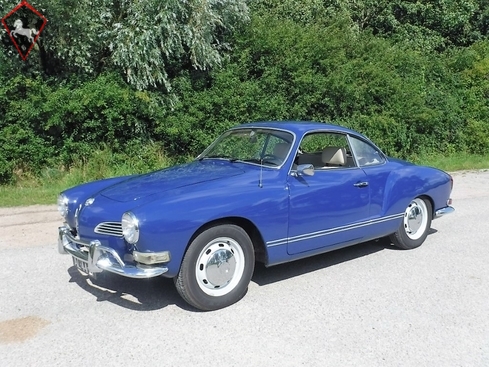















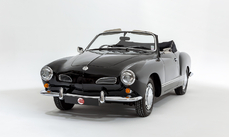
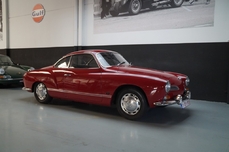
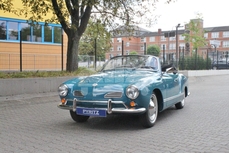
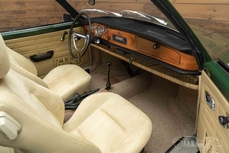
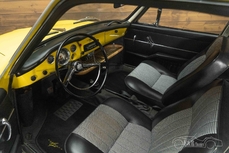
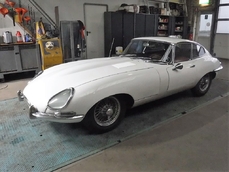
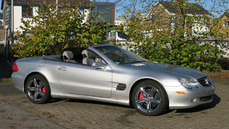
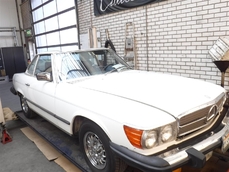
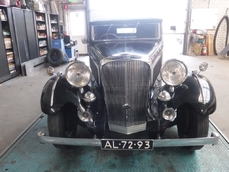
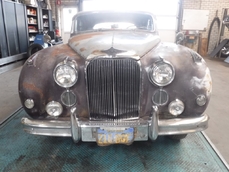

 vars & config
vars & config
 logs & msgs
logs & msgs 39
39 10366.6 KB
10366.6 KB 1771 ms
1771 ms



